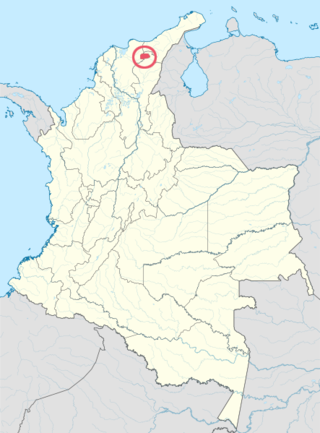Top Qs
Timeline
Chat
Perspective
Arhuaco language
Chibchan language spoken in Colombia From Wikipedia, the free encyclopedia
Remove ads
Arhuaco, commonly known as Ikʉ (Arhuaco: Ikʉ), is an Indigenous American language of the Chibchan language family, spoken in South America by the Arhuaco people.[3]
This article includes a list of references, related reading, or external links, but its sources remain unclear because it lacks inline citations. (June 2020) |
There are 8000 speakers, all in the Sierra Nevada de Santa Marta region of Colombia, 90% of whom are monolingual.[3] Literacy is 1 to 5% in their native language. Some speak Spanish, and 15 to 25% are literate in that auxiliary language.[3] The users have a very strong traditional culture and have vibrant use of their tongue.[3]
It is also known as: Aruaco, Bintuk, Bíntukua, Bintucua, Ica, Ijca, Ijka, Ika, and Ike.[3]
The language uses a subject–object–verb (SOV) sentence structure.[3]
Remove ads
Phonology
/ə/ is raised to and merged with /ɨ/ word finally.
This language registers 17 consonant phonemes:
Syllable structure
With some exceptions, Arhuaco syllables may begin with up to two consonants (the second of which must be a glide /w j/) and may be closed by one of the following consonants: /ʔ n r w j/.
Prosody
Arhuaco stress normally falls on penultimate syllables, with secondary stresses occurring on every other preceding syllable, in the case of longer words (e.g. /ˌunkəˈsia/ 'protective bracelet').[4] There are some affixes and enclitics that are extrametrical and do not count as syllables for stress assignment.
Remove ads
Morphology
Personal pronouns
Frank (1985, 34) lists six personal pronouns for Arhuaco, with singular and plural numbers for first, second, and third persons and notes that they "do not occur very frequently in text; they occur occasionally in subject position, very rarely in object position, and most frequently as the object of a preposition".[5]
Unusually, person marking in Arhuaco verbs has evolved to have effectively become a way to mark epistemic modality or evidentiality.[6][7]
Remove ads
References
Frank, Paul. 1985. A grammar of Ika. PhD thesis. University of Pennsylvania.
Frank, Paul. 2000. Ika syntax. Dallas, TX: Summer Institute of Linguistics.
Landaburu, Jon. 2000 La lengua Ika, in Lenguas indígenas de Colombia: Una visión descriptiva. Bogotá: Instituto Caro y Cuervo (Spanish).
Notes
External links
Wikiwand - on
Seamless Wikipedia browsing. On steroids.
Remove ads

